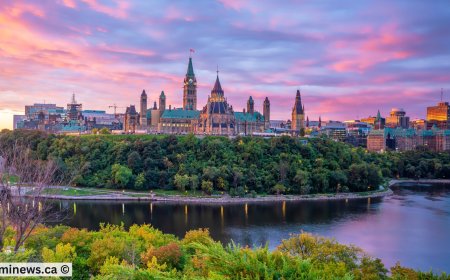Pharmacists Canada Immigration Pathways: Understanding Salaries, Work Roles, and Best Provinces
Welcome to the pathway to Canada immigration for skilled professionals and trade workers. This guide is specifically tailored for Pharmacists looking to work and settle in Canada, offering a deep dive into the essential aspects of immigration and employment in this field.
Introduction
In recent years, Canada has emerged as a popular destination for pharmacists seeking to advance their careers and explore new employment opportunities. In this article, we will take a detailed look at the career prospects for pharmacists in Canada, focusing on the National Occupation Classification code (NOC Code) NOC 3131. We will cover key aspects such as the profile description, main job duties, education and license requirements, skills needed, median salaries, retirement prospects, and possible visa options for pharmacists looking to practice in Canada. Whether you are a recent graduate exploring new horizons or an experienced pharmacist considering a move to Canada, this article will provide valuable insights into the opportunities that await you in the Great White North.
What is the Profile Description of a Pharmacists as per the Canadian National Occupation Classification (NOC) Standards?
Pharmacists play a crucial role in the healthcare industry by compounding and dispensing prescribed medications for patients. They also provide valuable consultation services to both clients and healthcare providers. Community pharmacists typically work in retail settings, while hospital pharmacists work within hospital pharmacies. Industrial pharmacists, on the other hand, are involved in the research, development, promotion, and manufacture of pharmaceutical products within pharmaceutical companies and government agencies. Overall, pharmacists play a key role in ensuring the safe and effective use of medications for individuals and communities.
What are the Main Job Duties of a Pharmacists in Canada?
- Check prescriptions for proper dosage, compound pharmaceutical products, dispense medication and provide advice on usage to customers
- Maintain medication profiles, manage stock of pharmaceutical supplies and ensure proper preparation, packaging, distribution and storage of drugs
- Renew existing prescriptions, supervise pharmacy staff and co-ordinate activities within the pharmacy
- Participate in research for new drug development, formulate and test new drug products, co-ordinate clinical investigations and control quality during production
- Develop information materials about drug products, evaluate labelling and packaging, and promote pharmaceutical products to health professionals
What are the Education, Certifications, and Licensing Requirements to Work as Pharmacists in Canada?
In order to become a pharmacist, individuals must first earn a university degree in pharmacy and complete a period of supervised practical training. Additionally, licensure is mandatory in all provinces and territories for pharmacists working in community and hospital settings.
What Essential Skills are Required for Pharmacists to succeed in Canada?
In order to be successful in the profession of pharmacists, individuals must possess a variety of essential skills. Pharmacists must be knowledgeable in dispensing prescribed pharmaceuticals and advising on indications, contra-indications, adverse effects, drug interactions, and dosage. They must also be skilled in compounding prescribed pharmaceutical products, calculating, measuring, and mixing quantities of drugs, and ensuring proper preparation, packaging, distribution, and storage of vaccines, serums, biologicals, and other drugs. Pharmacists must maintain medication profiles, advise customers on non-prescription medication, and check prescriptions for proper dosage. Additionally, they must control the quality of drug products during production to ensure they meet standards of potency, purity, uniformity, stability, and safety. Pharmacists also play a role in formulating new drug products, promoting pharmaceutical products to health professionals, testing new drug products for stability, participating in research for new drug development, developing information materials about drugs, coordinating clinical investigations of new drugs, and evaluating labelling, packaging, and advertising of drug products. These essential skills are crucial for pharmacists to excel in their profession and provide quality care to their customers.
What is the Median Age and Retirement Age for Pharmacists in Canada?
The median age of skilled professionals working as Pharmacists is 41 years old, indicating that many individuals in this profession are still in the middle of their careers. The average retirement age for Pharmacists is 66, suggesting that individuals in this field typically work for a number of years before retiring. This data highlights the long and rewarding careers that Pharmacists often have, as they continue to practice their profession well into their 60s.
How many job openings exist for Other Pharmacists in Canada, and what's their provincial distribution?
Canada has a total of 49 job openings for the role of Pharmacists. Among the provinces, Quebec has the highest number of job openings with 24 positions available, followed by Saskatchewan with 13 job openings. British Columbia has 7 job openings, while both Alberta and Ontario have only 2 job openings each. Nova Scotia has the lowest number of job openings with just 1 position available. Quebec stands out as the province with the maximum number of job openings, while Nova Scotia has the least number of job opportunities for Pharmacists.
What is the hourly wage or salary of Pharmacists in different Provinces of Canada?
Pharmacists in Canada earn varying wages depending on the province in which they work. In British Columbia, pharmacists can expect a high wage of $127,387, a median wage of $98,725, and a low wage of $68,708. Moving east to Alberta, pharmacists earn a high wage of $138,040, a median wage of $111,536, and a low wage of $60,529. Saskatchewan offers even higher wages with a high of $145,484, a median of $109,108, and a low of $72,847 for pharmacists. In Manitoba, pharmacists can expect a high wage of $141,059, a median wage of $110,436, and a low wage of $75,699. Ontario has a high wage of $143,978, a median wage of $101,646, and a low wage of $40,188 for pharmacists. Pharmacists in Quebec can earn a high wage of $161,891, a median wage of $112,199, and a low wage of $63,924. New Brunswick offers a high wage of $135,958, a median wage of $98,894, and a low wage of $75,256 for pharmacists. Pharmacists in Nova Scotia can expect a high wage of $123,079, a median wage of $93,743, and a low wage of $64,830. Lastly, pharmacists in Newfoundland and Labrador earn a high wage of $130,905, a median wage of $97,557, and a low wage of $72,744. As evident, wages for pharmacists vary significantly by province in Canada.
What are the various visa options available for Pharmacists migrating to Canada?
Pharmacists have excellent migration options to Canada through various visa programs. The Pharmacist's profile is in high demand in Canada and is eligible for Category based Express Entry Invitation draws for Canadian PR under the Healthcare Occupations Category. The Express Entry Visa Category allows skilled workers, including Pharmacists, to apply for permanent residency based on their qualifications and work experience. Additionally, Pharmacists can also explore Provincial Nominee Programs and Employer Sponsored Work Visas to migrate to Canada. These programs offer a pathway for Pharmacists to directly apply for Canadian PR. Apart from these options, there may be other visa pathways open for Pharmacists to migrate to Canada. To explore all the migration options and discuss in detail, book an appointment with our professionals to guide you through the process.
Have Questions or Need Assistance?
If you have any queries or require assistance with your immigration plans, we're here to help. Our experienced immigration consultants are ready to provide personalized guidance tailored to your specific needs.
Don't hesitate to reach out and schedule an appointment today. Whether you're seeking clarification on immigration processes, exploring visa options, or need support with documentation, we're dedicated to assisting you every step of the way.
Book an appointment with our team to discuss your immigration goals and receive expert guidance for your journey to Canada.
What's Your Reaction?
 Like
0
Like
0
 Dislike
0
Dislike
0
 Love
0
Love
0
 Funny
0
Funny
0
 Angry
0
Angry
0
 Sad
0
Sad
0
 Wow
0
Wow
0







































































